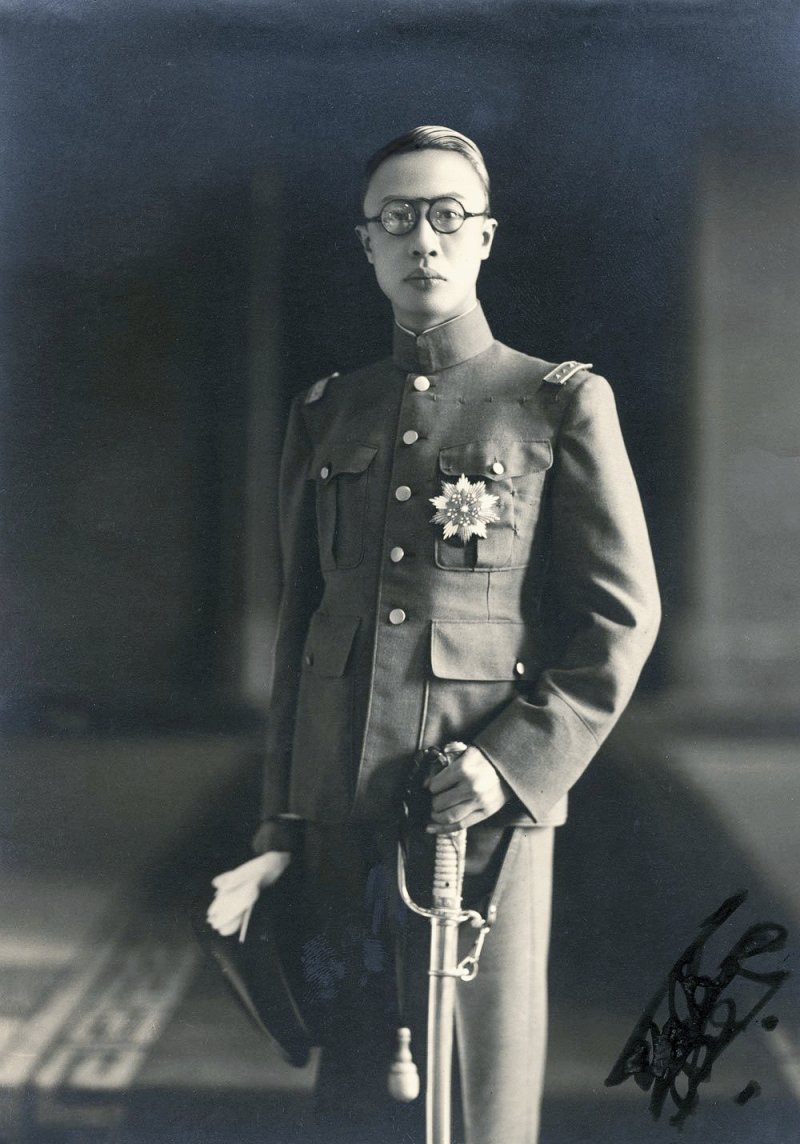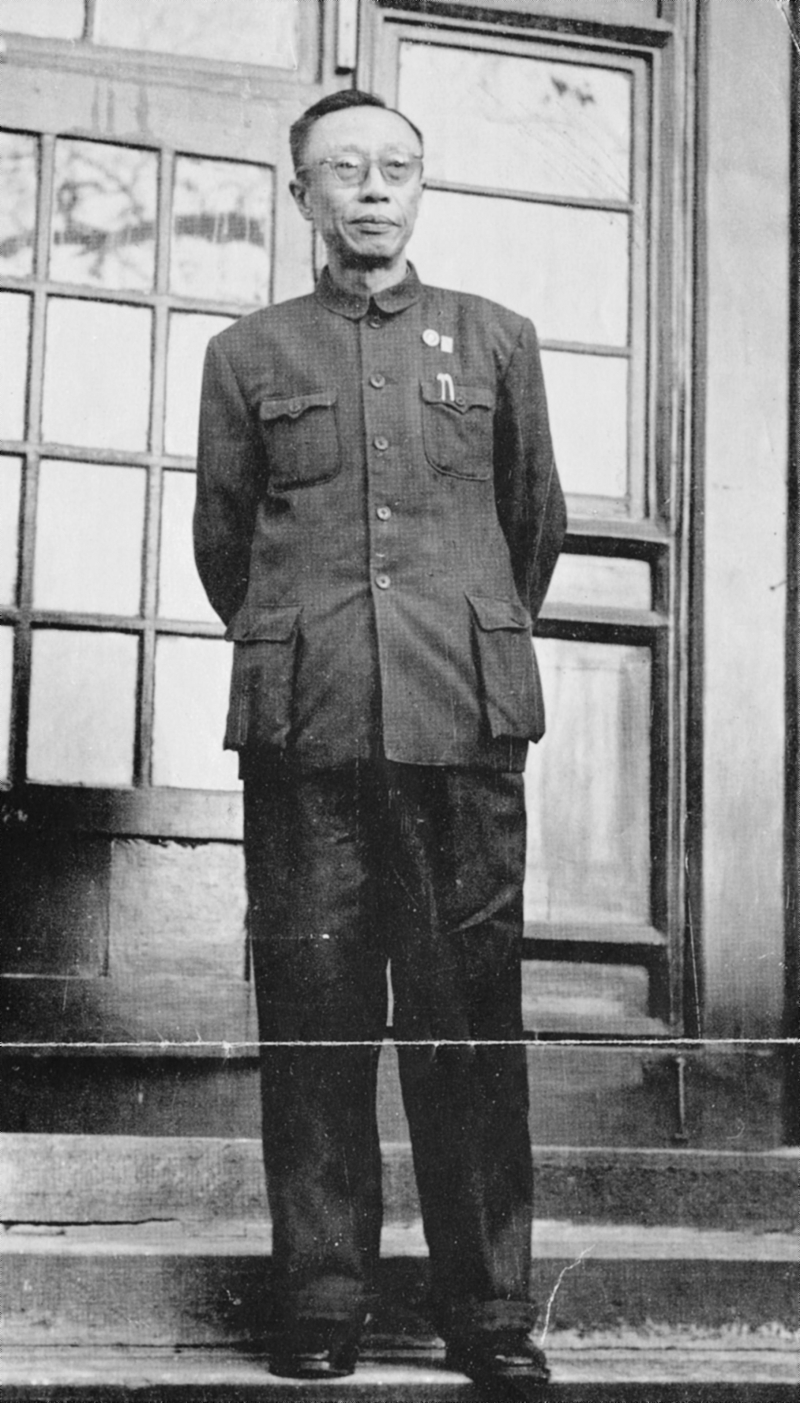Puyi
Aisin-Gioro Puyi (Chinese: 溥儀; 7 February, 1906 - 17 October, 1967), courtesy name Yaozhi, was the eleventh and final Qing dynasty monarch of China. He was crowned Emperor in 1908 at the age of two, but was forced to abdicate on February 12, 1912, during the Xinhai Revolution. As Qing emperor, his era name, Xuantong, means "proclamation of unity." During World War II, he was installed as Emperor Kangde of the Japanese puppet state of Manchukuo.
From July 1 to July 12, 1917, he was briefly restored to the throne as Qing Emperor by loyalist General Zhang Xun. In 1922, he married Empress Wanrong in an arranged marriage. He was expelled from the palace in 1924 and sought refuge in Tianjin, where he began courting both the warlords vying for hegemony over China and the Japanese, who had long desired control of China. Japan established the puppet state of Manchukuo in 1932, following the Japanese invasion of Manchuria, and he was chosen to be the new state's chief executive under the era name of "Datong" (Ta-tung).
He was proclaimed Emperor of Manchukuo in 1934, with the era name "Kangde" (Kang-te), and ruled over his new empire until the end of the Second Sino-Japanese War in 1945. During his third reign as Emperor, he served as a puppet of Japan, signing the majority of edicts issued by the Japanese. During this time, he spent most of his time in the Salt Tax Palace, where he regularly ordered his servants to be beaten. During these years, his first wife's opium addiction consumed her, and they were generally estranged. He had many concubines as well as male lovers. Puyi fled the capital after Japan (and thus Manchukuo) fell in 1945, and was eventually captured by the Soviets; he was extradited to the People's Republic of China after it was established in 1949. He never saw his first wife again after his capture; she died of starvation in a Chinese prison in 1946.
Puyi was a defendant in the Tokyo Trials and was later imprisoned and reeducated for ten years as a war criminal. After his release, he wrote his memoirs (with the assistance of a ghost writer) and became a titular member of the Chinese People's Political Consultative Conference and the People's Republic of China's National People's Congress. His time in prison profoundly influenced him, and he expressed deep regret for his actions as Emperor. He died in 1967 and was buried in a commercial cemetery near the Western Qing tombs.












